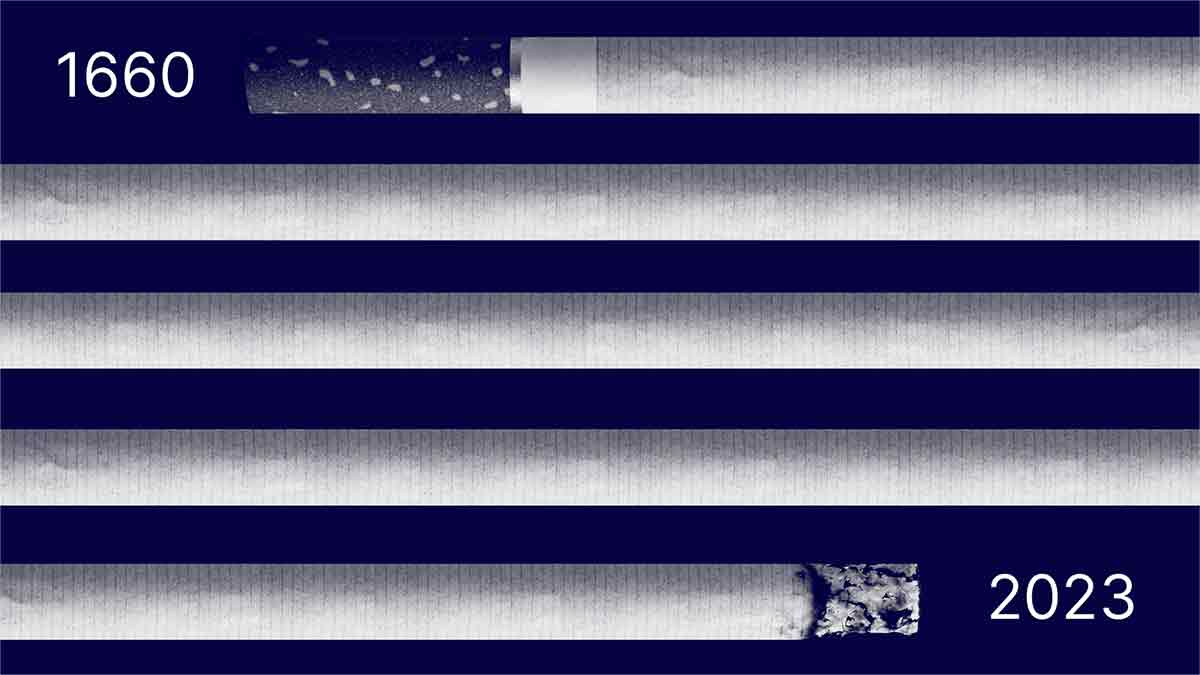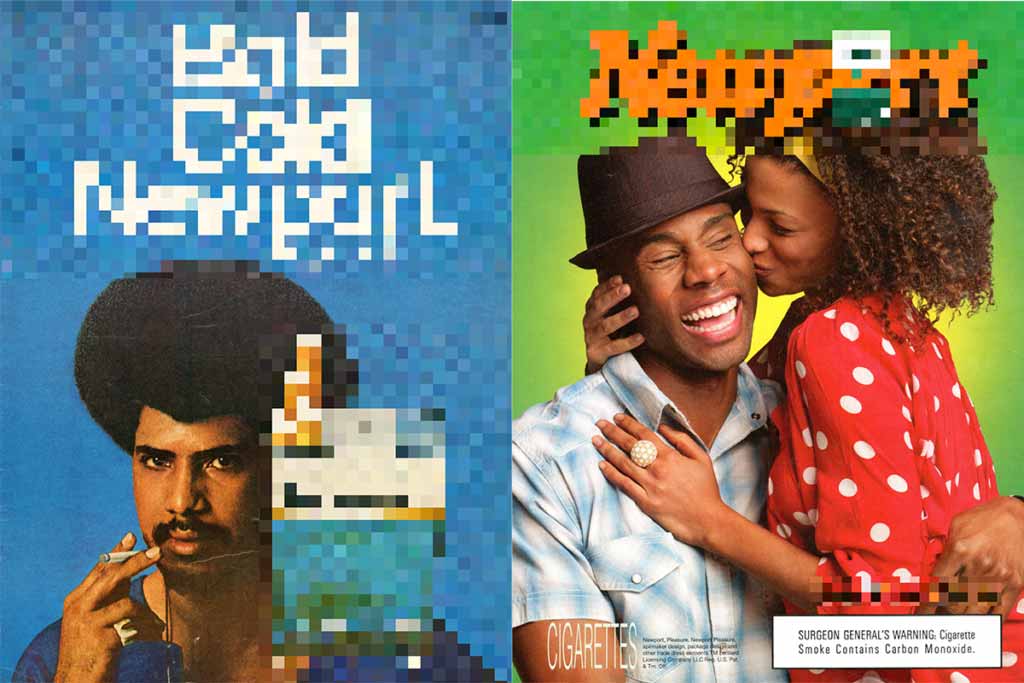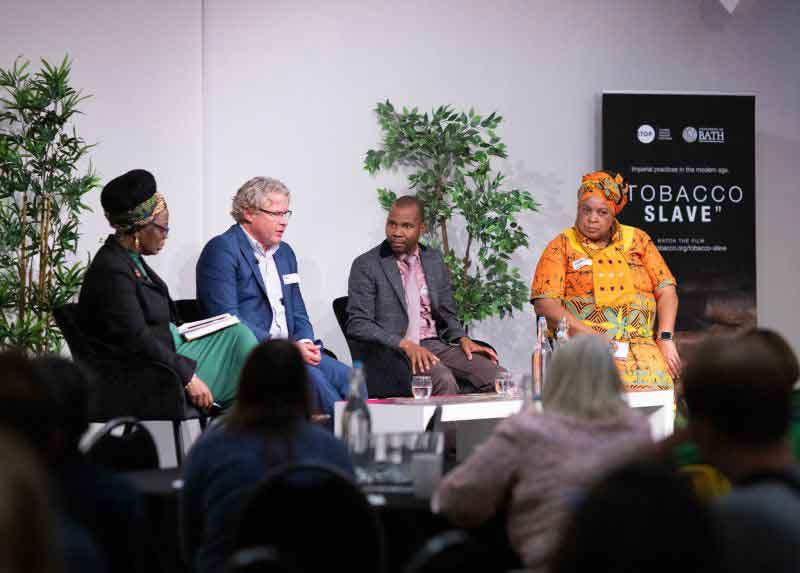- Resources
- News
-
-
Get Email Updates
Sign up for STOP's emails and never miss an update on our latest work and the tobacco industry's activity.
-
Get Funding
Ready to tackle industry interference? You could be eligible for a grant.
-
Share a Tip
Do you have information on tobacco industry misconduct in your country? Let us know.
-
Get Email Updates

The tobacco industry has a long, racist history of targeting and exploiting groups of people it deems more susceptible to its influence, and who can help fuel its profits.
February is Black History Month in the United States. While there’s plenty of evidence showing how the Big Tobacco has profited off racist practices in the U.S., the truth is it exploits Black people all around the world, and it must be held accountable.
Big Tobacco exploits Black workers
Some of the tobacco industry’s early financial success is alleged to have been due in large part to the free labor extorted from enslaved Black people. As early as the mid-1600s, tobacco merchants in Bristol, England, like Edward Colston, became involved in the production of tobacco on Virginia plantations, with Colston’s Royal African Company officially beginning its slaving operations in 1660. Modern-day Imperial Brands (the world’s fourth-largest tobacco company) grew out of the Wills company, which also operated in Bristol starting in the late 1700s, and has been accused of profiting off slave labor. Bristol was a critical hub of the slave trade that supplied forced labor to enormously profitable tobacco plantations in the U.S.[i]
Today, tobacco leaf production is increasing in Africa, and the system seems designed to keep African tobacco farmers in debt and in poverty. With the contract system, farmers receive loans from tobacco leaf companies for supplies, like seeds and fertilizer, with an agreement that the tobacco leaf company will buy the farm’s product. But the farmers aren’t allowed to set their selling prices; tobacco leaf companies decide what they’ll pay for the leaves. After repaying their loans and factoring in labor costs, farmers often end up in debt.
Tobacco companies also exploit cheap labor. “[…] Tobacco farming gives its profits to the industry but gives very low incomes to the tobacco growers themselves,” WHO Framework Convention on Tobacco Control secretariat Vera Da Costa e Silva told The Guardian in 2018. As part of its investigation, Guardian reporters found that in Malawi, some families were paid nothing until the tobacco crop was sold after harvest, and that families were sometimes forced to take their children out of school to work in the tobacco fields. The following year, a lawsuit against British American Tobacco alleged that families working on tobacco farms in Malawi were paid as little as £100-200 for ten months’ work. These injustices likely represent just a fraction of cases like it around the continent.

Many studies show that predominantly Black neighborhoods are exposed to more tobacco advertising and have more tobacco retailers.
Big Tobacco exploits Black consumers

1970 and 2005 ads from the same company show a continued strategy of targeting Black consumers
Around 72% of Black adult smokers and 88% of Black youth smokers in the U.S. report smoking menthol cigarettes (compared to a respective 22% and 26% of white smokers). This isn’t because Black people prefer menthol; it’s because of calculated, racist marketing by Big Tobacco. Tobacco companies have been targeting Black consumers with menthol cigarette marketing for decades. Menthol cigarettes have been found to be harder to quit than non-flavored cigarettes, perhaps accounting for part of the disparity in successful quit attempts in the U.S., where Black people are less successful at quitting compared to white and Hispanic smokers, despite more quit attempts.
Even so, Big Tobacco continues to push back against calls to ban menthols and put forth feeble attempts to win the good graces of Black consumers. Altria, the parent company of the largest tobacco company in the U.S., Philip Morris USA, recently committed $5 million to “fight racial inequality” in the U.S. In comparison, the industry has spent billions on predatory marketing to Black people over decades and profits enormously off the sale of menthol tobacco.
Big Tobacco targets Black communities
Just as tobacco companies aim to addict Black individuals to their deadly products, they also exploit Black communities as a whole. A 2002 study concluded that the tobacco industry sought partnerships with Black leadership organizations, ultimately, to increase tobacco use among Black people, and convince Black people to defend industry-backed policy and fight back against tobacco control. Further, leaked documents from 2000 show that Philip Morris International identified leaders in Black communities as “influential on political thinking” and sought to “develop relationships with them and ‘educate’ them.”
Big Tobacco exploits at the neighborhood level, too. Many studies show that predominantly Black neighborhoods are exposed to more tobacco advertising and have more tobacco retailers. A 2021 study also showed that the prices of menthol cigarettes were lower in predominately Black neighborhoods, making them more accessible.
The time for accountability is now
These injustices continue today because the tobacco industry hasn’t been held to account. Weak attempts to use so-called corporate social responsibility activities to distract from the industry’s past and ongoing exploitation aren’t going to work.
If tobacco companies are truly committed to addressing systemic racism, they should demonstrate that they believe Black lives matter, and stop fighting menthol bans, end predatory marketing, cease the exploitation of entire communities and end the poverty cycle they perpetuate throughout their supply chain.
[i] Madge Dresser (2000) Squares of distinction, webs of interest: Gentility, urban development and the slave trade in Bristol c.1673–1820, Slavery and Abolition, 21:3, 21-47, DOI: 10.1080/01440390008575319



